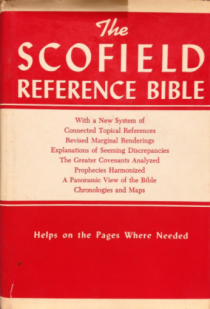- May 17, 2021
- 1,121
- 387
- 38
- Country
- United States
- Faith
- Protestant
- Marital Status
- Divorced
By choosing to save some and not others (Romans 9:11-23), God is not a puppet master, forcing those outside the elect to commit sins contrary to their own wills and desires. Instead, God leaves them to their natural fallen condition:
By the regeneration of the Holy Spirit, God’s elect are enabled to turn from sin and receive faith in Jesus Christ:
This doesn’t mean that Christians will never sin, but those who show no evidence of regeneration whatsoever have reason to doubt that their conversion was genuine:
2 Peter 1
5 For this very reason, make every effort to add to your faith goodness; and to goodness, knowledge; 6 and to knowledge, self-control; and to self-control, perseverance; and to perseverance, godliness; 7 and to godliness, mutual affection; and to mutual affection, love. 8 For if you possess these qualities in increasing measure, they will keep you from being ineffective and unproductive in your knowledge of our Lord Jesus Christ. 9 But whoever does not have them is nearsighted and blind, forgetting that they have been cleansed from their past sins. 10 Therefore, my brothers and sisters, make every effort to confirm your calling and election. For if you do these things, you will never stumble, 11 and you will receive a rich welcome into the eternal kingdom of our Lord and Savior Jesus Christ.
From a theological viewpoint, the definition of the will is viewed in light of the revealed, biblical truths of original sin and the spiritual depravity of man. These two truths render the definition of “will” in regard to fallen man as “captive to sin” (Acts 8:23), a “slave of sin” (John 8:34; Romans 6:16-17) and subject only to its “master,” which is sin (Romans 6:14). As such, although the will of man is “free” to do as it wishes, it wishes to act according to its nature, and since the nature of the fallen will is sinful, every intent of the thoughts of the fallen man’s heart is “only evil continually” (Genesis 6:5, cf. Genesis 8:21). He, being naturally rebellious to that which is spiritually good (Romans 8:7-8; 1 Corinthians 2:14), “is bent only on rebellion” (Proverbs 17:11). Essentially, man is “free” to do as he wishes, and he does just that, but man simply cannot do that which is contrary to his nature. What man “wills” to do is subject to and determined solely by his nature.
https://www.gotquestions.org/compatibilism.html
By the regeneration of the Holy Spirit, God’s elect are enabled to turn from sin and receive faith in Jesus Christ:
For the Calvinist, Ephesians 2:1 is key: “And you were dead in your trespasses and sins.” Without Christ, people are spiritually dead. Dead people cannot do anything. A spiritually dead person can no more do anything to remedy that situation than a physically dead person can climb out of a grave. Therefore, God must regenerate people, making them spiritually alive, before they can trust in Christ as Savior (John 3:8)...
So, does regeneration come before faith? John 6:44 says, “No one can come to Me unless the Father who sent Me draws him, and I will raise him up at the last day.” Second Corinthians 4:4 declares, “The god of this age has blinded the minds of unbelievers, so that they cannot see the light of the gospel that displays the glory of Christ, who is the image of God.” It is undeniable that God must do something to enable people to believe. At the very least, God must draw people to Christ and open their eyes.
https://www.gotquestions.org/regeneration-before-faith.html
This doesn’t mean that Christians will never sin, but those who show no evidence of regeneration whatsoever have reason to doubt that their conversion was genuine:
2 Peter 1
5 For this very reason, make every effort to add to your faith goodness; and to goodness, knowledge; 6 and to knowledge, self-control; and to self-control, perseverance; and to perseverance, godliness; 7 and to godliness, mutual affection; and to mutual affection, love. 8 For if you possess these qualities in increasing measure, they will keep you from being ineffective and unproductive in your knowledge of our Lord Jesus Christ. 9 But whoever does not have them is nearsighted and blind, forgetting that they have been cleansed from their past sins. 10 Therefore, my brothers and sisters, make every effort to confirm your calling and election. For if you do these things, you will never stumble, 11 and you will receive a rich welcome into the eternal kingdom of our Lord and Savior Jesus Christ.



